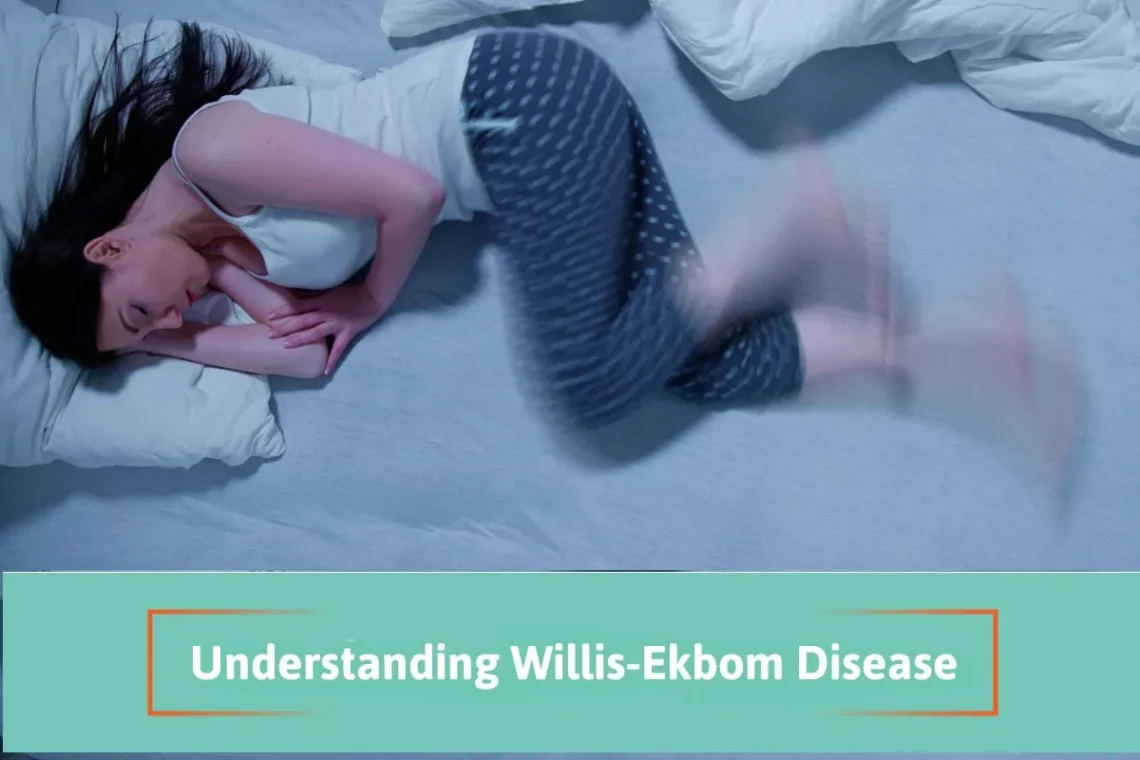
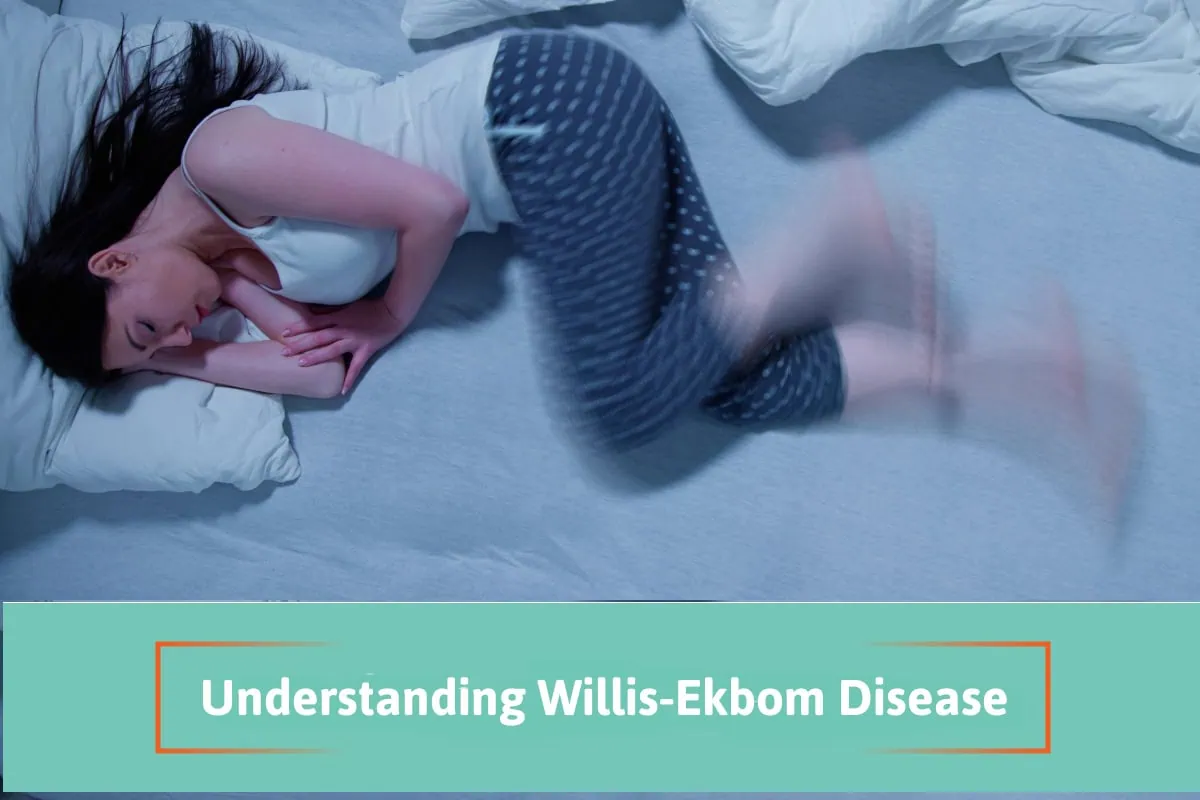
Willis-Ekbom disease, more commonly known today as restless legs syndrome (RLS), is a common condition that impacts millions of people around the world. Named after Dr. Thomas Willis and later Dr. Karl-Axel Ekbom, who expanded the clinical understanding of the disorder, this medical condition is characterized by an uncomfortable and often overwhelming urge to move the legs, especially during periods of rest.
People affected by Willis-Ekbom disease experience sensations that can only be relieved temporarily by moving their legs. This irresistible urge to move can make it difficult to relax, fall asleep, or stay asleep, leading to significant disruptions in daily life.
What is Willis-Ekbom Disease?
Willis-Ekbom disease, or RLS, is considered a neurological disorder that primarily impacts the nervous system’s ability to regulate movement and sensation. While it’s most known for the urge to move the legs, in some cases, people report similar sensations in their arms or other parts of the body. The sensations are often described as crawling, pulling, itching, throbbing, or creeping — uncomfortable feelings that trigger the need to move for relief. This symptom of restless legs usually worsens during periods of inactivity, especially in the evenings or at night, severely affecting sleep quality.
Dr. James Anderson, DPM: Pioneering Research on a Surgical Solution
A groundbreaking development in the treatment of restless legs syndrome comes from Dr. James Anderson, DPM, a leading podiatrist and researcher. His research has shown that nerve decompression surgery — a technique that surgically releases areas where nerves are entrapped — can significantly relieve symptoms of RLS in many patients.
By focusing on anatomical points where nerves in the lower legs become compressed, Dr. Anderson has provided a revolutionary option for people whose restless legs symptoms are related to peripheral nerve entrapments. His work represents a major advancement for individuals who have not found relief through traditional medications or therapies. Dr. Anderson’s surgical approach addresses one of the root causes of restless legs by improving nerve function and blood flow, offering hope for lasting symptom reversal rather than mere symptom management.
Who Gets It?
Willis-Ekbom disease can affect anyone, but certain groups are at higher risk. Research shows that pregnant women — particularly during the last trimester — often experience temporary RLS symptoms, which usually resolve after delivery. Individuals with chronic health conditions such as kidney failure, iron deficiency, or Parkinson’s disease are also more likely to develop RLS.
There is also an interesting link between RLS and attention deficit hyperactivity disorder (ADHD). Several studies suggest that individuals with ADHD are more prone to experiencing symptoms of RLS, possibly due to underlying neurological similarities. Family history plays a strong role as well; if you have relatives with RLS, your chances of developing it increase significantly.
Symptoms of RLS
The symptoms of RLS vary in severity but typically include:
- A strong urge to move the legs, often accompanied by uncomfortable sensations
- Symptoms that are worse during periods of rest or inactivity
- Temporary relief from moving the legs or stretching
- Worsening symptoms in the evening or at night
- Difficulty trying to fall asleep or stay asleep
Many people with Willis-Ekbom disease also experience periodic limb movement disorder (PLMD) — involuntary jerking or twitching of the legs during sleep, which further disrupts rest.
Causes and Risk Factors
While the exact cause of Willis-Ekbom disease isn’t completely understood, several factors are known to contribute:
- Iron deficiency: Low iron levels in the brain can trigger RLS symptoms, even if blood levels appear normal.
- Chronic diseases: Conditions like kidney failure and Parkinson’s disease are strongly associated with RLS.
- Pregnancy: Hormonal changes, particularly in the third trimester, can worsen or trigger RLS symptoms.
- Medication: Certain drugs, including some antihistamines, antidepressants, and anti-nausea medications, can mimic or worsen RLS symptoms.
- Genetics: A family history of RLS significantly increases your risk.
Dr. Anderson’s research highlights another contributing factor often overlooked: nerve compression in the lower legs, which can exacerbate or even trigger restless legs symptoms.
Diagnosing Willis-Ekbom Disease
The diagnosis of RLS is primarily clinical, based on a patient’s symptoms and medical history. There’s no single lab test that can confirm the condition. According to the American Academy of Sleep Medicine, diagnosis typically includes:
- An irresistible urge to move the legs, often with uncomfortable sensations
- Symptoms that begin or worsen during periods of rest
- Relief by movement
- Symptoms that are worse at night
Doctors might also order blood tests to check for iron deficiency or kidney function and may recommend a sleep study if PLMD is suspected. If symptoms persist despite lifestyle changes and medications, evaluation for potential nerve entrapment — as Dr. Anderson suggests — could open new treatment possibilities.
Treatment Options
Managing Willis-Ekbom disease involves a combination of lifestyle changes, addressing underlying causes, and sometimes medication.
Lifestyle Changes:
- Establish a regular sleep routine
- Reduce caffeine, alcohol, and tobacco use
- Engage in moderate exercise (not too close to bedtime)
- Practice relaxation techniques like yoga or meditation
Medical Treatments:
- Iron supplements if deficiency is detected
- Medications that influence dopamine levels
- Anti-seizure medications to ease sensory disturbances
- In some cases, opioids or muscle relaxants (for severe, resistant symptoms)
Surgical Options: For patients who have a physical component like nerve entrapment, nerve decompression surgery offers an exciting new avenue for symptom relief.
Living with Willis-Ekbom Disease
Although RLS is a common condition, it remains widely underdiagnosed and misunderstood. Many people suffer for years without a clear explanation for their symptoms, affecting quality of life, emotional health, and daily functioning.
Raising awareness about the new understanding of nerve-related causes and surgical options is critical. Thanks to research efforts by physicians like Dr. Anderson, there is now greater hope for real symptom reversal, not just management. If you or someone you love is struggling with restless legs, know that treatments — including innovative surgical solutions — exist today that can make a profound difference.
Watch Our Patient Testimonial Videos for RLS

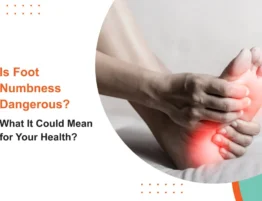
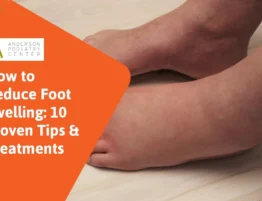
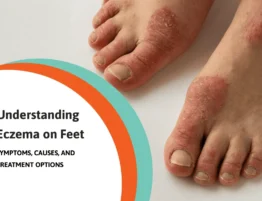


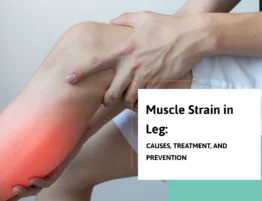
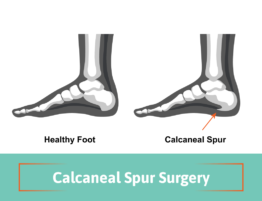
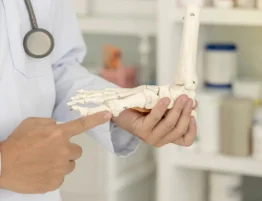
Write a comment: